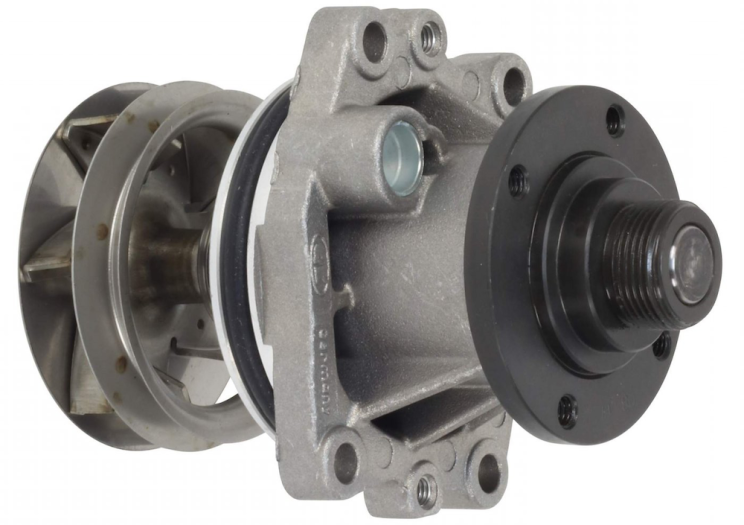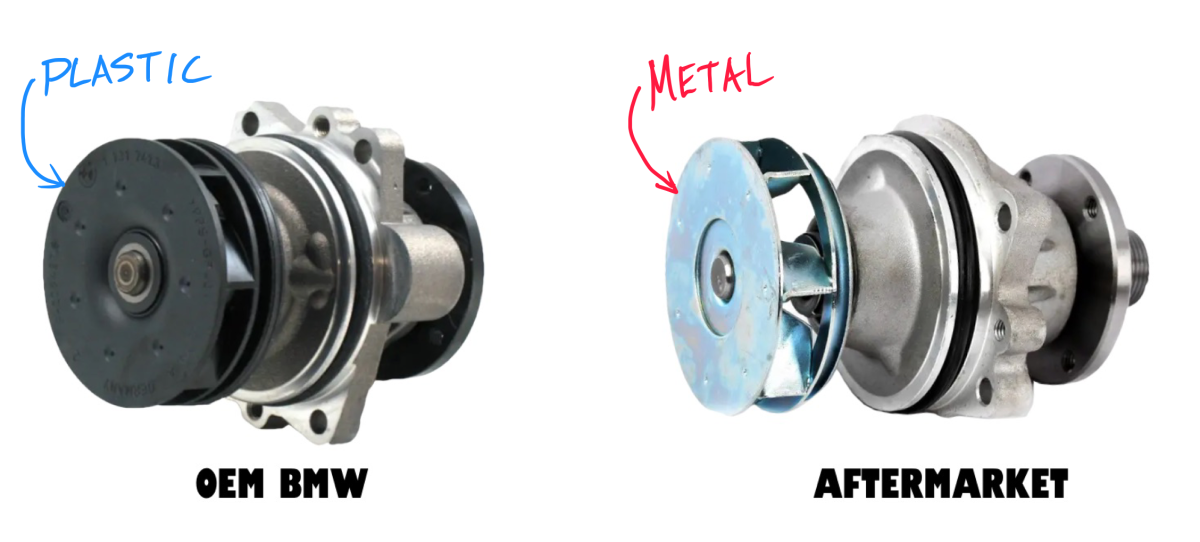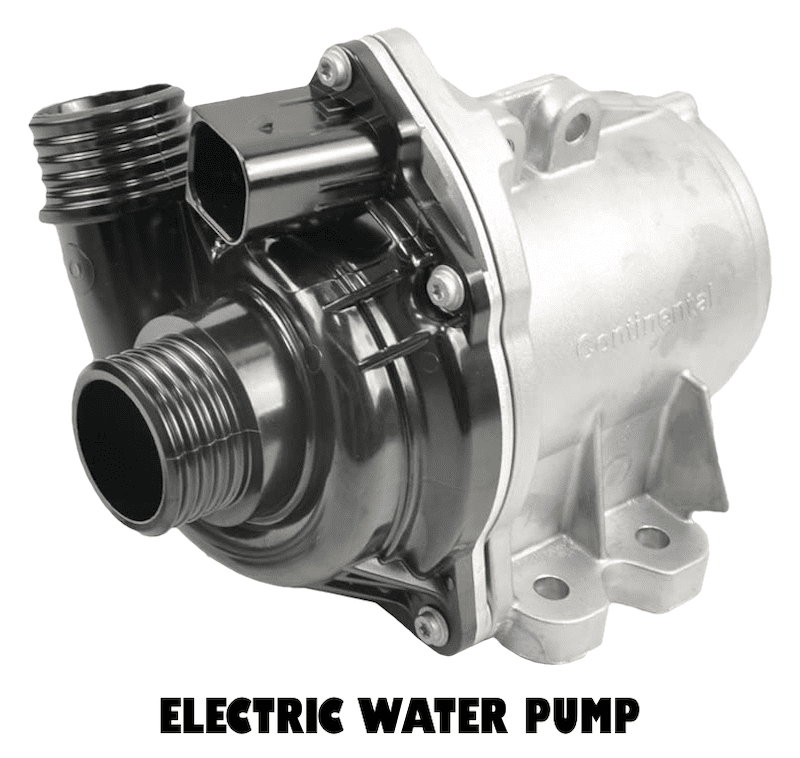
What is an engine water pump?
A “water pump” is part of the coolant system of a vehicle that moves coolant through your engine block, radiator, and hoses to extract heat from the engine through convection. All BMW motors are water-cooled. This compares to other engine types like older Porsche and VW engines which are air-cooled and do not require any coolant.
What does water-cooled mean?
The term “water-cooled” does not translate literally to just plain water, however. The coolant system in your BMW uses typically a 50/50 mixture of water mixed with coolant/antifreeze. Coolant/antifreeze contains a chemical called Ethylene glycol, this chemical additive allows the coolant mixture to freeze at extremely low temperatures and boil at extremely high temperatures. These properties are perfect for vehicles in cold climates where you do not want the coolant to freeze inside your engine block. Freezing water expands and can crack your engine block if not mixed properly with coolant/antifreeze. Furthermore, as your engine operates it generates heat. The proper mixture of coolant will prevent the coolant system from boiling, allowing a higher coolant temperature.
What happens if my engine overheats?
Overheating of your engine can cause catastrophic damage. The extreme heat can warp your vehicle’s cylinder head, crack your engine block, create a leaky head gasket, and more. Under no circumstance do you want your vehicle to overheat. Avoid overheating at all costs by paying attention to your engine temperature gauge and pulling over on the side of the road if high temperatures are approaching.
How does a water pump work?
A water pump consists of impeller blades that rotate typically off of an accessory belt that runs off the crankshaft pulley. Modern BMWs use electronically driven water pumps to free up engine power and increase efficiency. The water pump impellers rotate and cycle the coolant through the coolant system. The cool coolant passes through the engine block, extracts the heat from the engine block through conduction then transfers to the radiator. The coolant passes through the radiator while air passes over it, reducing the temperature of the coolant in the process. Then, the cycle repeats.
Why do BMW water pumps fail?
Like all wearable parts, over time they fail. Water pumps are not intended to last the life of the vehicle, no matter who the carmaker is. The typical point of failure for the mechanical (belt-driven) water pumps is either the bearings or the plastic blades. The OEM BMW impellers consist of plastic blades from the factory. This plastic heat cycles from hot to cold to hot, then becomes brittle, and will eventually break over time. Broken impeller blades will prevent coolant from being cycled through your engine and lead to overheating. Also, the ball bearings on the pump are prone to failure over extended use as well.

bmw plastic vs metal impeller water pump
Modern, electronic, water pumps may fail even sooner than mechanical, belt-driven pumps due to the less reliable electronics. Additionally, electrical water pumps are susceptible to the same types of failure as mechanical ones, bearings, and plastic impeller failure.
Upgrading to metal impeller blades.
Many aftermarket companies manufacture water pumps with metal impeller blades. These have a less likely chance of cracking and failing compared to plastic finned blades.
How often should I change my water pump?
It is recommended to change your water pump every 80,000 miles (129,000km). It is critical to replace wearable components BEFORE they fail, not AFTER they fail. Therefore, preventative maintenance is the largest factor in ensuring the longevity of your BMW. Follow your maintenance manual on your vehicle to avoid catastrophic damage. You may think you are saving money by waiting until a part fails, but once the part fails the ancillary damage caused will almost always outweigh the cost of replacing the part prior to failure.
The bottom line:
BMWs have a reputation around the car community for having weak coolant systems. The reality is, they are robust if you perform the proper maintenance. Many of these older BMW models are falling into the hands of younger owners who cannot afford to properly maintain them and complain every time failure occurs. The vehicle is not properly maintained as the original design intended. Above all, perform preventative maintenance and replace your water pump at the service intervals recommended to avoid engine overheating.
Where can I learn more BMW fun facts?
Learn more BIMMERtips fun facts by clicking HERE



